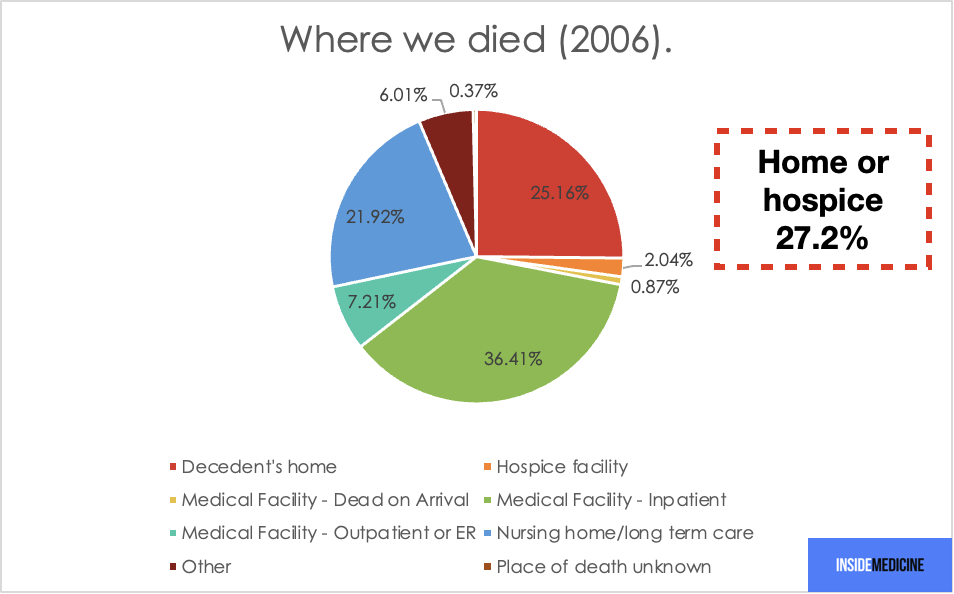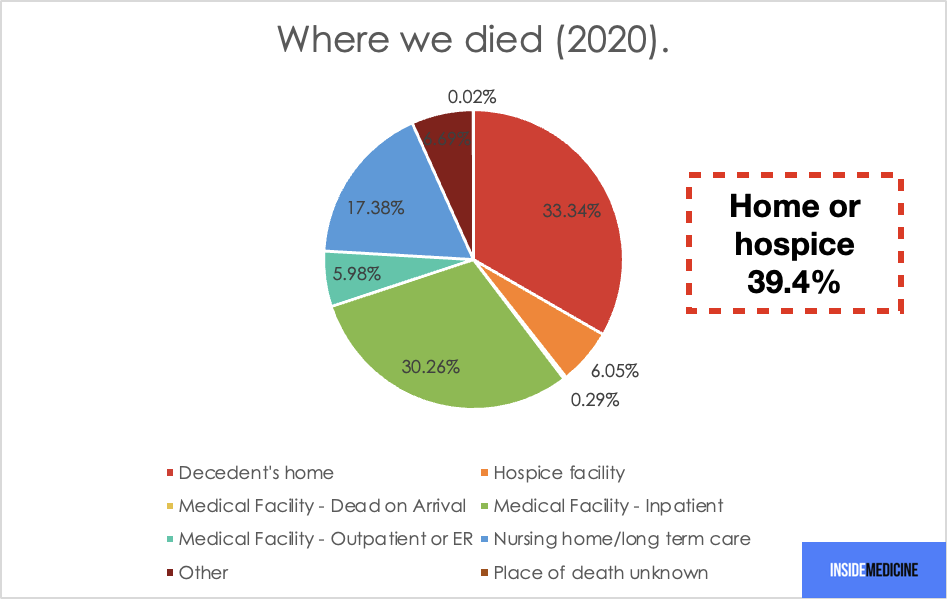Data Snapshot: President Carter and where we die now.
President Carter has entered "home hospice." How common is this?
President Jimmy Carter is at home, receiving hospice care. He’s 98. His long life is attributable to a combination of good luck (genes), good luck (the privilege of living in an advanced economy), good luck (medical care, including treatments that arrived just in time to save his life), and good luck (are one’s personal habits anything other than a byproduct of environment and upbringing?).
I once wrote about Mohammed Ali’s death in Slate. I love that piece, but it didn’t get a lot of reads. The upshot was that though Ali was the consummate fighter—he ended his life not in an ICU getting CPR, which for him would have a been futile final battle at that stage, but at home in peace.
President Carter is also showing wisdom here.
He’s not alone. I pulled some data to get a picture of where we stand on this, as a nation.
Increasingly, it appears, people are dying in locations of their choosing. Over 70% of people say that they would want to die at home. Still, under half of that actually do. However, we are making some kind of progress. In my view, home and hospice deaths reflect a degree of patient choice. (That is, they knew death was near, and were not getting aggressive hospital-based care bent on extending life.)
The share of deaths occurring in hospice facilities in 2020 was 300% of the 2006 rate (2019 was similar, so the pandemic did not change the share of deaths). At-home deaths also went up over that time. Take a look at the where we died in 2006 versus 2020:
Notice that inpatient hospital deaths dropped from 36.4% of all deaths to 30.3% during that time.
There are differences depending on the cause. Among home and hospice deaths, cancer has long been the leading underlying cause of death. (Neurologic disease deaths due to causes like Alzheimers are also increasingly happening at home.) Everywhere else in the healthcare system, cardiovascular disease remains the leading cause of death by far.
That tells me that people with advanced cancer have a better sense of their final days than those with heart disease—and therefore are more easily able to choose where to be when they die. It also means they are receiving the right care in the end—meant to prolong comfort, not suffering. The data bear that out. Many, like President Carter receive hospice at home, an ideal situation so that families and patients get the support and care that is needed, in the best possible environment.
May we all be like President Carter: to have the opportunity to enjoy the luck of longevity in life as well as the choice of dignity when the time comes to let go.




Nice. You nailed it: “It also means they are receiving the right care in the end—meant to prolong comfort, not suffering.”
Your piece in Slate on Ali as fantastic.